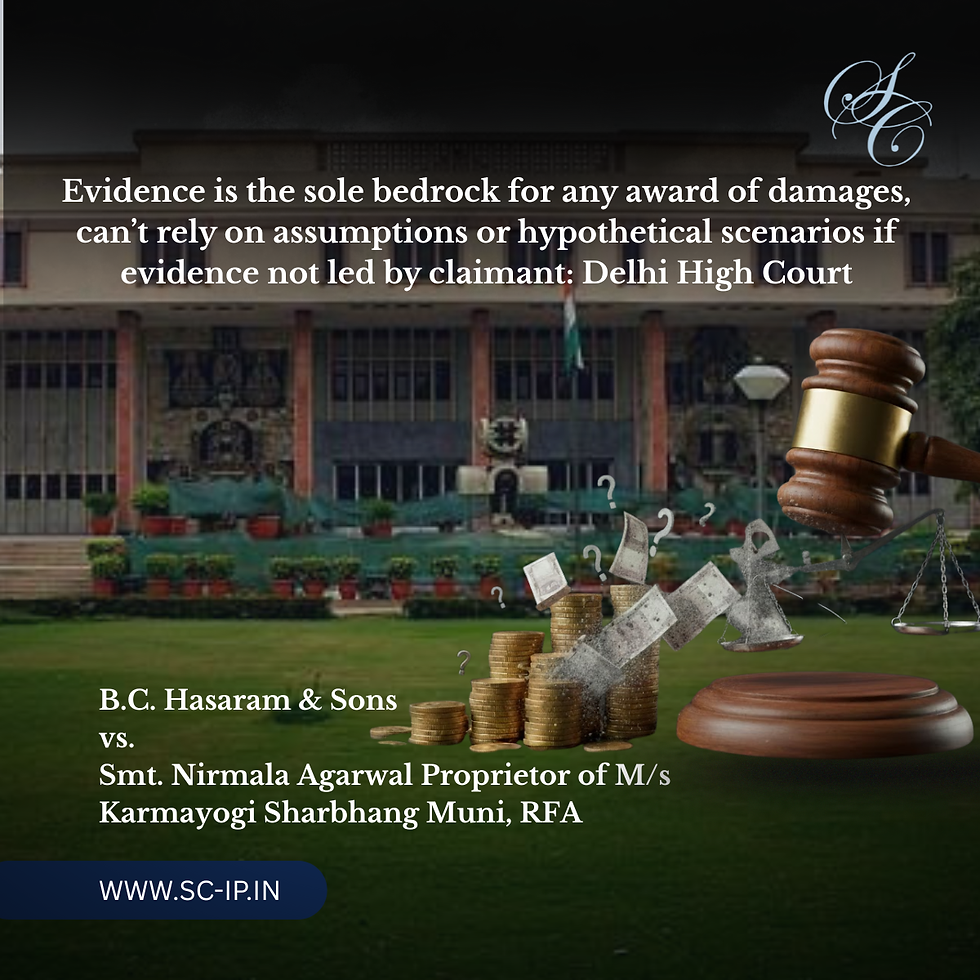Imclone LLC v. Assistant Controller of Patents and Designs
- SC IP
- Jul 24, 2024
- 2 min read
Updated: Jan 17, 2025
Recently, the Madras High Court, in the case of Imclone LLC (“Appellant”) v. the Assistant Controller of Patents and Designs (“Controller”), clarified the interpretation of non-patentability of “the mere discovery of a scientific principle or the formulation of an abstract theory or discovery of any living thing or non-living substance occurring in nature”. The court allowed the appeal and directed the Controller to grant the Appellant a patent for its “Receptor Antagonists for Treatment of Metastatic Bone Cancer”.
A First Examination Report was issued by the Controller, citing non-patentability, inter alia, on the ground of the invention being the discovery of a naturally existing molecule/substance. The Appellant, in its reply, submitted that the claimed antibody was not isolated from nature but was generated by enhancing the immunity of genetically modified mice. Subsequently, the Controller disagreed with the Appellant’s submissions in the oral hearing and refused the patent application.
The Appellant relied on several decisions of the Intellectual Property Appellate Board (IPAB) and argued before the court that the Controller’s decision was misplaced, and the Appellant’s invention did not constitute non-patentable subject matter. The Controller, on the other hand, argued that the antibodies in question were isolated from human beings and were produced using known technology, and therefore lacked novelty. It was also argued that IPAB decisions cited by the Appellant involved genetically modified or mutated antibodies, which differ from the current case.
The court observed that the statute uses the qualifier mere in relation to “discovery of a scientific principle” and this does not extend to “the discovery of any living thing or non-living substance occurring in nature”. The court further noted that, in any case, in the Appellant’s invention, the mice’s genetic material had been replaced with human genetic material, and the mice were then injected with an engineered antigen, resulting in the generation of novel antibodies. The court, therefore, concluded that while non-living substances found in nature or isolated from nature are not patentable, a synthetic version of a rarely occurring substance, crucial for treating illness, when produced in large quantities, can be patented, if other criteria such as novelty and technical advancement are satisfied. Accordingly, the court directed the Controller to grant a patent to the Appellant’s application.
Imclone LLC v. Assistant Controller of Patents and Designs, [(T) CMA (PT) 126/2023, judgment dt. March 6, 2024]











Comments